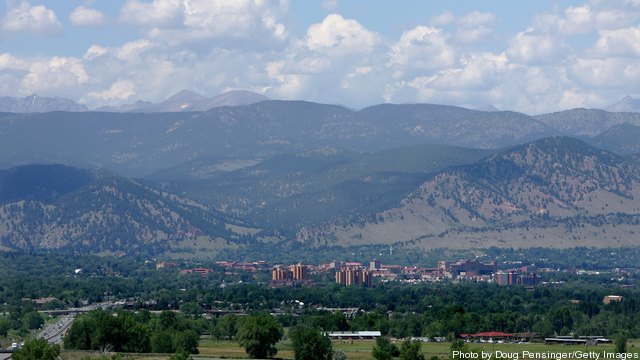A new University of Colorado study affirms the dynamic and critical role energy development is playing in the state – in terms of support for public schools, job creation and the economy.

Just looking at 2012, oil and natural gas activity generated more than $200 million for Colorado schools, supported nearly 94,000 jobs in the state and created more than $23 million in state economic activity, according to the report conducted by the university’s Leeds School of Business and commissioned by API. CU researcher Brian Lewandowski:
“Over the last few years, Colorado has grown as an energy producer, and that has had a measurable impact on employment, wages, and funding for schools and public services. Most of the actual production occurred in just five counties, but new business activity associated with energy – management, engineering, financial – was distributed across the state, creating jobs that pay about double the state average.”
The report looked at the impacts of oil and natural gas operations on a county-by-county basis and specifically examined revenue streams generated by energy development for schools, roads, parks, health care and more. Details:
- $3.2 billion in labor income in 2012 to direct industry workers who earned twice the average wage for all industries in the state.
- $126.5 billion in the value of output supported by upstream and midstream oil and natural gas activity from 2008 through 2012.
- $410.3 million in total property tax revenue, severance tax and federal mineral lease distributions generated by the oil and natural gas industry in 2012.
City and county jurisdictions used funds generated by oil and natural gas activity to pay for public safety – nearly $37 billion in the aggregate from the sample jurisdictions – general government ($29 million), health and human services ($26 million), public works ($18 million) and streets/highways ($12 million). The impact of oil and natural gas operations on employment also is significant:
In addition to providing a steady stream of revenue to virtually all taxing jurisdictions in Colorado, the oil and natural gas industry is a source of high wage jobs to residents across the state. In addition to direct employment in Colorado, the oil and gas activity leads to additional indirect and induced employment as the oil and natural gas activity ripples through virtually all sectors of the Colorado economy.
The Colorado study shows the broad benefits of oil and natural gas development in a state rich in energy-bearing shale, safely accessed with advanced hydraulic fracturing and horizontal drilling. It’s the American energy revolution viewed at the state level. Colorado’s energy experience parallels what is happening in North Dakota, Texas and other states where resource wealth is safely being developed as a result of industry innovation and strong state leadership, including a sound regulatory regime. API’s Kyle Isakower, vice president for regulatory and economic policy:
“Thanks to innovations in hydraulic fracturing and horizontal drilling, Colorado’s is playing a leading role in America’s energy revolution. For state leaders, including the governor’s commission, it’s important to understand how vital energy is to the state’s economy, and how much local schools, taxpayers, and workers benefit from responsible energy production.”
By Mark Green
Originally posted October 10, 2014
Energy Tomorrow is brought to you by the American Petroleum Institute (API), which is the only national trade association that represents all aspects of America’s oil and natural gas industry. Our more than 500 corporate members, from the largest major oil company to the smallest of independents, come from all segments of the industry. They are producers, refiners, suppliers, pipeline operators and marine transporters, as well as service and supply companies that support all segments of the industry.

